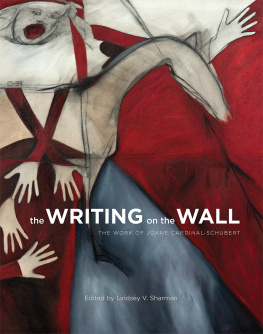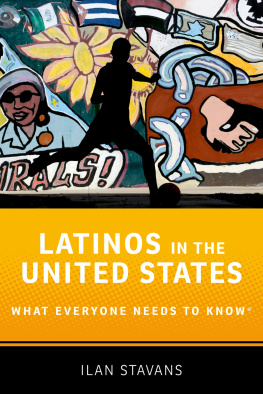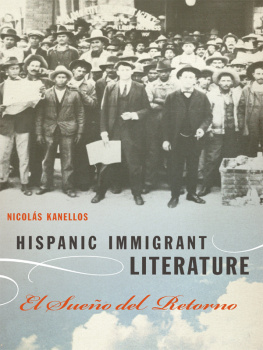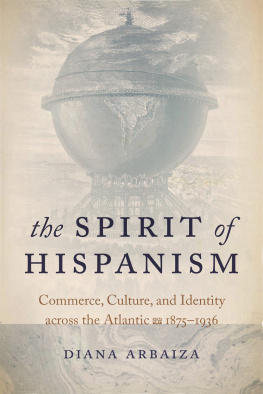WRITING/RIGHTING HISTORY
Twenty-Five Years of Recovering the US Hispanic Literary Heritage

Edited by Antonia Castaeda and Clara Lomas

This volume is made possible by grants from the University of Houston and the Center for Regional Studies at the University of New Mexico. We are grateful for their support.
Recovering the past, creating the future
Arte Pblico Press
University of Houston
4902 Gulf Fwy, Bldg 19, Rm 100
Houston, Texas 77204-2004
Cover design by Adelaida Mendoza
The Library of Congress has catalogued Volume I of Recovering the US Hispanic Literary Heritage as follows:
Cataloging-in-Publication (CIP) Data is available.
ISBN: 978-1-55885-139-9 (Volume II)
ISBN: 978-1-55885-251-8 (Volume III)
ISBN: 978-1-55885-361-4 (Volume IV)
ISBN: 978-1-55885-371-3 (Volume V)
ISBN: 978-1-55885-478-9 (Volume VI)
ISBN: 978-1-55885-526-7 (Volume VII)
ISBN: 978-1-55885-604-2 (Volume VIII)
 The paper used in this publication meets the requirements of the American National Standard for Information SciencesPermanence of Paper for Printed Library Materials, ANSI Z39.48-1984.
The paper used in this publication meets the requirements of the American National Standard for Information SciencesPermanence of Paper for Printed Library Materials, ANSI Z39.48-1984.
2019 by Arte Pblico Press
Printed in the United States of America
19 20 21 22 5 4 3 2 1
Contents
This commemorative 25th Anniversary Volume is dedicated to Nicols Kanellos and Toms Ybarra-Frausto, who boldly envisioned and made possible the recovery of our literary heritage, and to the future generations of scholars who will continue the work of recovering, preserving, publishing and transforming the literary landscapes of the Americas.
Preface
A. GABRIEL MELNDEZ
University of New Mexico
As Director of the Center for Regional Studies at the University of New Mexico, I am pleased to lend CRS support to the publication of this 25th anniversary volume celebrating the brilliant work of the Recovering the US Hispanic Literary Heritage Program. Over the last two decades the Recovery Programs work has been to unearth early Latino/a writings and to critically reassemble these writings as the foundational epistemology documenting the experience of generations of Latinos living in the United States and to give proof of the many ways in which each generation has determined and shaped the political and cultural life of the nation. More has been achieved than could have been imagined in 1992 when a group of leading scholars, librarians and archivists from the United States, Mexico, Puerto Rico and Spain, set about to research, locate, preserve and make accessible all literary-historical documents produced by Hispanics living in the United States from the Colonial Period to 1960. The 25th anniversary volume is an apt testimony to Dr. Nicols Kanelloss foresight and his unrivaled ability to bring together a remarkable constellation of people to take on Recoverys ambitious mission. The Recovery Programs biannual conference and grant awards programs has stimulated the work of an impressive group of Recovery scholars whose work is reflected here and in prior Recovery proceedings, anthologies and literary histories over the last twenty-five years, so too Recoverys supremely talented in-house team of researchers and editors over the years: Carolina Villaroel, Gabriela Baeza Ventura, Alejandra Balestra, Helvetia Martell and others have through their work, dedication and intelligence secured the future of the Recovery Program. As a member of the Recovery Board, I celebrate the milestone that is the 25th anniversary volume, confident in the knowledge that the celebratory moment is truly deserved and sober in our mutual resolve to continue the unfinished work of fully recovering the US Hispanic Literary Heritage.
Introduction
ANTONIA CASTAEDA
Independent Scholar
CLARA LOMAS
Colorado College Professor Emerita
Writing was and continues to be an act of creation, and the archive connected creations from the past with creators in the present. Social and political demands of the present call for a full accounting of the past, one that reflects fragmented, contentious and transnational identities across time.
Ral A. Ramos
Writing/Righting History: Recovering the US Hispanic Literary Heritage 25th Anniversary Volume commemorates the founding of the Recovery Program that empowered a new world of literary scholarship and gave rise to new ways of thinking, reading, theorizing and understanding American literature, from the colonial era to the present. This commemorative volume also represents Volume X of select, peer-reviewed papers from the Fourteenth Recovery conference, held at the University of Houston on February 10-12, 2017. The Appendices closing this commemorative volume reveal the depth and breadth of the transformative scholarship of the Recovery Program.
Appropriately, in keeping with memorializing the first quarter century of the Program, the volume opens with Considering Recoverys First 25 Years: Reflections y Testimonios. Here, the Recovery Programs Administrators and Board of Directors, some of whom have been with the Program since 1990, reflect upon a quarter century of recovering and writing/righting the US Hispanic Literary Heritage in the latter third of one millennium and the beginning of another. In both celebratory and sober modes, because there is both much to celebrate and much to give us pause in the current cultural and political climate of renewed anti-Hispanic doctrines, the multi-generational board of literary scholars, historians, archivists and librarians, engage the range of literary, historical, cultural, political and other issues rooted in the contentious encounter of Spanish and English literatures in the North American landscape and, in the due course of time, ingrained in the institutional fabric of the United States. In their reflections and testimonios, Board members signal the broad spectrum of critical, analytic and interpretative issues with which the Recovery Program has contended from its inception, and reflect too, on themes and topics not as present in the discourse of the time when Recovery was created. Among salient overarching issues are those of linguistic and cultural translation, of identity, of the Spanish, English, and bilingual archive, of transnationalism, of forging space within contentious intellectual environments and structured institutional inequalities, of teaching and pedagogy and of attendant resistance to canonical challenges that Recovery Program scholarship poses.
This section is comprised of two parts. In the first, the Director, Executive Editor and Director of Research, recount the challenges and accomplishments of a quarter century of recovering the written legacy of Latinas/os/x in the United States. In the second, organized into four thematic categories, members of the Board of Directors reflect upon, offer testimony and reveal the challenges and power of rethinking and righting the American literary canon.
Section II visually documents Recovery conferences and meetings, archival preservation and project events, through a collection of historical photographs.









 The paper used in this publication meets the requirements of the American National Standard for Information SciencesPermanence of Paper for Printed Library Materials, ANSI Z39.48-1984.
The paper used in this publication meets the requirements of the American National Standard for Information SciencesPermanence of Paper for Printed Library Materials, ANSI Z39.48-1984.